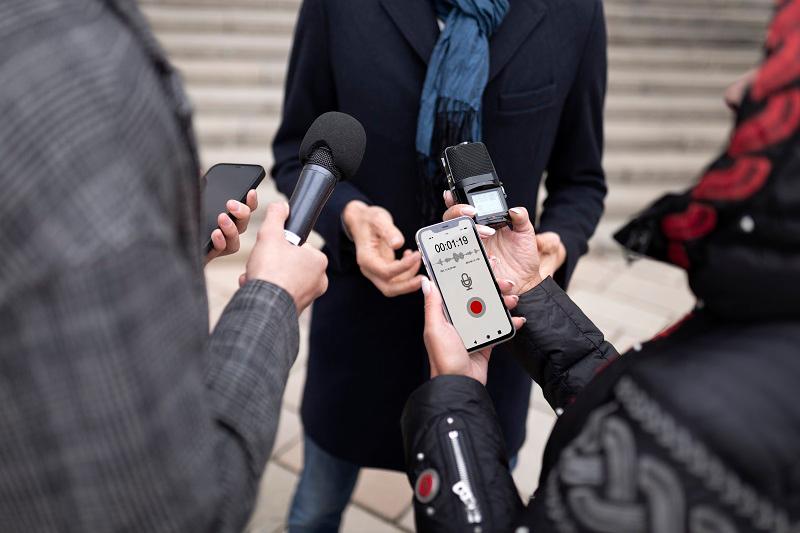THE term “trial by media” gained popularity in the late 20th and early 21st centuries.
It refers to the impact of television and newspaper coverage on an individual’s reputation, often shaping public perceptions of guilt or innocence before a court has rendered its verdict.
Trial by media creates a reality shaped more by perception than by objective truth, where opinions are formed before verified information can be fully assessed.
The delicate balance between sense and sensationalism, news and noise, civility and chaos, and balance and extremism can also become increasingly distorted.
The Ulu Tiram and GISBH cases have driven the media into a frenzy as both are considered matters of public interest. From broad overviews to minute details, nothing has been spared in the reporting.
Public comments reflect feelings of anger, resentment, frustration and disappointment toward the accused
or state institutions. Even the names of witnesses are often anticipated, jeopardising the confidentiality of the case.
A lackadaisical attitude in handling high-profile cases can ultimately lead to witnesses becoming hostile or biased.
The current situation illustrates how trial by media can create its own narrative, potentially undermining fair judicial proceedings and damaging the reputations of those involved.
It can also contaminate and influence witnesses’ memories, stances and views. Even if an accused individual is acquitted, the public may still perceive the person as guilty, leaving the individual’s reputation tarnished despite a verdict of innocence.
While the creation of social media has given us an extensive space to express our opinions, the lack of policing and regulations has allowed the widespread of rumours and prophecies in court cases.
The news disseminated through mainstream and social media can create multiple ideas, often leading to the presumption of guilt or innocence for the accused before the trial even begins. This is the exact definition of trial by media.
The principle of sub judice (under judicial consideration), though relevant, appears to be overlooked in the public discourse surrounding ongoing trials. The rule on sub judice seeks to safeguard the sanctity of court proceedings and ensure a fair trial for the accused in criminal cases.
Therefore, it would be apt for lawyers, prosecutors and the judiciary to take cognisance of the current situation and devise certain measures to ensure the impartiality of witnesses, and to avoid any spillage or contamination of evidence.
Expert witnesses, if appointed under section 45(1) of the Evidence Act, should not only be someone who is qualified in “science or art” but have a track record of being impartial and have not or will not mislead the court.
Impartiality here refers to individuals who abide by the law and do not have a track record of promoting repealed laws or overruled cases.
Although the court has the discretion to decide whether the expert evidence
is admissible, it is imperative for
experts to be scrutinised by the courts before accepting their views and opinions. In any event, it is trite law that expert opinion is not binding upon the court.
While the media shapes public debate and highlights cases of public interest, the unparalleled capacity of social media also offers lawyers an opportunity to volunteer and represent offenders who are in dire need of representation. Beyond concerns about legal fees, this is about striving to uphold justice. Some cases are simply meant to be pro bono.
With the proliferation of information available through mainstream and
social media platforms, lawyers and prosecutors should seize the opportunity to scour important details from these channels.
Unfortunately, very few lawyers have taken the bold step to assist those in desperate need of legal representation.
With the National Legal Aid Foundation unable to represent detainees under the Security Offences (Special Measures) Act 2012 during their trials and its potential dissolution, what would become of the poor and marginalised groups in need of legal representation?
Where are the pro bono lawyers
who are expected to uphold justice
and ensure the right to a fair
trial as enshrined in the Federal Constitution?
Legal advocates would do well to remember Martin Luther King Jr’s quote: “Injustice anywhere is a threat to justice everywhere.”
While no one can deny the media’s sterling role as the keeper of conscience and unraveller of wrongdoings, it is equally undeniable that the media has been able to entice vast reporting and responses from the public.
Therefore, it is essential to establish clear rules and regulations to safeguard individuals’ right to a fair trial, as stipulated in the Federal Constitution. Ultimately, what we seek is justice for all.
The writer is a criminologist and the deputy dean (Higher Degree) of
Faculty of Law, Universiti Malaya.
Comments: letters@thesundaily.com









